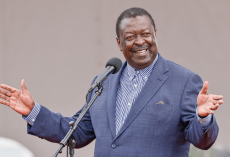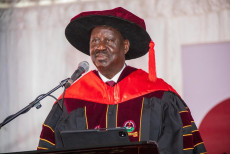- The urgency of climate change has become a rallying point for many voters, particularly among younger demographics. Candidates are expected to articulate their plans for combating climate change, transitioning to renewable energy sources, and addressing environmental justice.
As the 2024 U.S. presidential election is expected to take place on November 5, 2024, the political landscape is becoming increasingly intricate and competitive. Candidates from both major parties are preparing for a contest that promises to be both heated and impactful, with several key issues likely to influence voters' decisions and shape the narrative leading up to Election Day.
Economic concerns are at the forefront of voters' minds. With inflation rates fluctuating significantly over the past year, candidates are honing in on economic policies that resonate with every day Americans. Themes such as job creation, wage growth, and cost-of-living adjustments are central to campaign discussions.
The incumbent administration promotes a narrative of recovery, pointing to job growth and investments in infrastructure, while challengers argue that many Americans continue to struggle to make ends meet, emphasizing the need for more effective economic solutions.
Healthcare remains a pivotal topic, especially amid ongoing debates surrounding the Affordable Care Act and the rising costs of medical care. Candidates are proposing various reforms aimed at making healthcare more affordable and accessible, with key discussions including prescription drug pricing, expansion of mental health services, and the potential expansion of Medicare. As the electorate ages and healthcare needs increase, this issue is expected to play a significant role in voter decision-making.
The urgency of climate change has become a rallying point for many voters, particularly among younger demographics. Candidates are expected to articulate their plans for combating climate change, transitioning to renewable energy sources, and addressing environmental justice. The Biden administration's policies, such as rejoining the Paris Agreement and investing in clean energy, are often contrasted with the opposition's varying views on the importance and immediacy of environmental issues.
Read More
Social justice movements have gained momentum in recent years, profoundly influencing discussions around race, gender, and LGBTQ+ rights. Candidates are addressing these issues within their platforms, focusing on criminal justice reform, voting rights, and equity in education and employment. The electorate is increasingly attuned to how candidates tackle systemic inequality, making these topics crucial in this election cycle.
In an increasingly interconnected world, foreign policy is set to play a critical role in the upcoming election. Candidates will likely discuss their approaches to international relations, military spending, and security threats, such as cyberattacks. Ongoing conflicts in various regions and the U.S.'s role in global stability resonate with voters concerned about national security.
As the election approaches, voter turnout will be a decisive factor. Historically, higher turnout rates tend to favor Democrats, while lower turnout has benefited Republicans. Both parties are implementing various strategies to mobilize their bases and engage undecided voters. With early voting and mail-in ballots becoming more prevalent, accessibility to voting is poised to be a hot-button issue.
With these pressing issues shaping the political discourse, the 2024 U.S. presidential election is set to be one of the most consequential in recent history. As Election Day approaches, the stakes have never been higher for both candidates and the electorate.

-1730728501.jpg)










